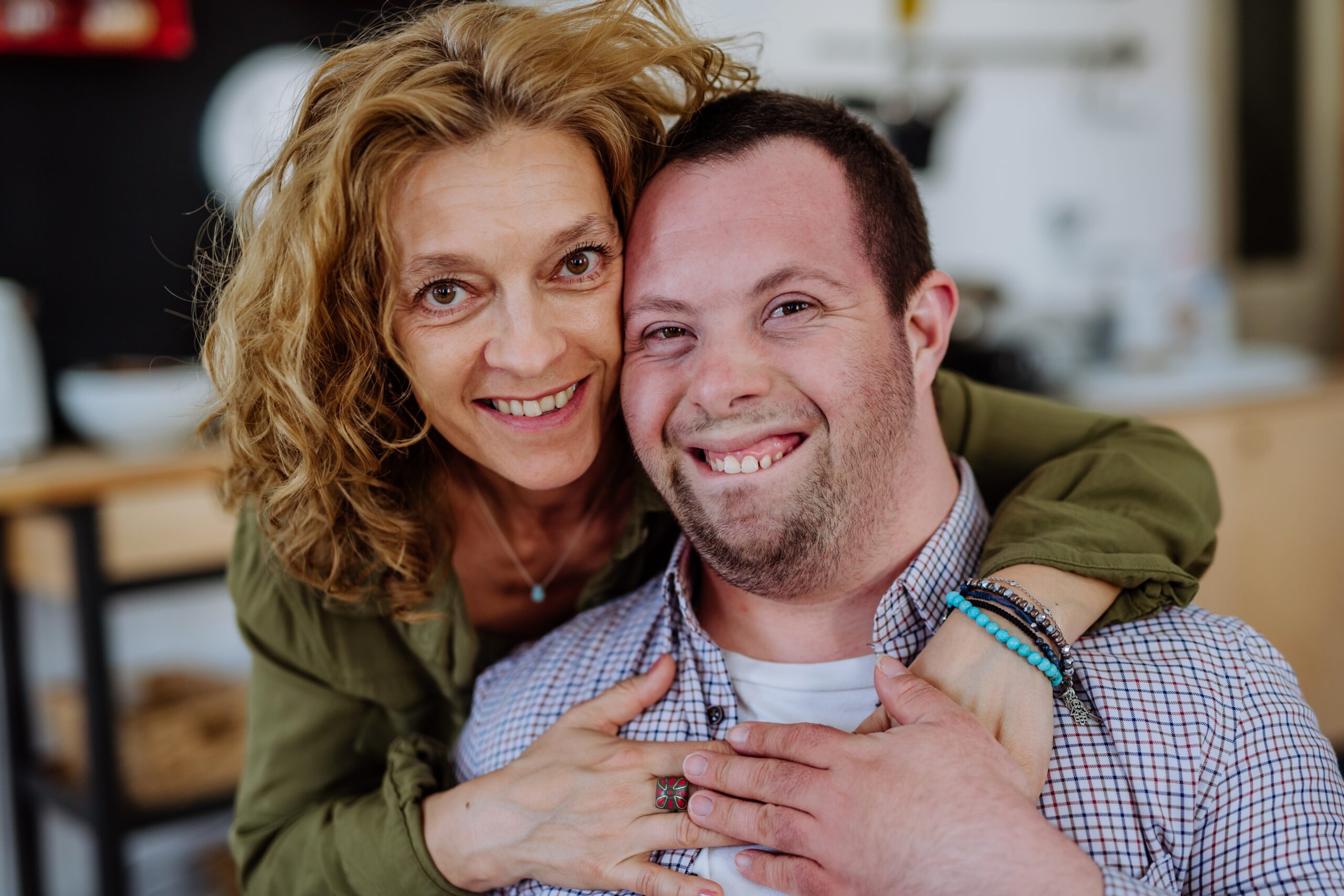
The Importance of Autism Services in Colorado
Autism Spectrum Disorder (ASD) is a complex neurodevelopmental condition that affects individuals differently, impacting communication, social interaction, and behavior. As the understanding and diagnosis of autism continue to evolve, so does the critical need for comprehensive and accessible support systems. In Colorado, the availability and quality of autism services in Colorado are paramount, not just for individuals on the spectrum, but for their families and the broader community.
At DDRC (Developmental Disabilities Resource Center), we see firsthand every day the profound impact that tailored, person-centered Colorado autism, and other intellectual and developmental disabilities (IDD), services can have. From early intervention in childhood to support for independent living in adulthood, these services are not merely beneficial—they are essential for fostering independence, promoting inclusion, and enhancing the overall quality of life for Coloradans with autism.
What are Autism Services in Colorado?
Autism services in Colorado encompass a wide range of therapeutic, educational, and supportive interventions designed to meet the diverse needs of individuals across the lifespan. These services are often multidisciplinary, involving a team of professionals working together to create individualized plans.
Common services in Colorado that support individuals with IDD, to include autism, are:
- Early Intervention Programs (EI Colorado): For children from birth through age two, these services focus on addressing developmental delays and are often provided in natural environments (like the home) to support a child’s early development in communication, social-emotional skills, adaptive behavior, and more. DDRC’s early intervention service coordinators play a crucial role in guiding families through this vital stage.
- Applied Behavior Analysis (ABA) Therapy: A widely recognized, evidence-based therapy that focuses on understanding and improving behaviors, social skills, and communication. ABA programs are highly individualized and typically involve one-on-one sessions.
- Speech and Language Therapy: Essential for individuals with autism to develop verbal and non-verbal communication skills, improve articulation, and enhance social communication.
- Occupational Therapy (OT): Helps individuals develop skills for daily living activities (e.g., dressing, feeding, fine motor skills) and sensory integration, aiding those who struggle with processing sensory information.
- Social Skills Groups: Provide structured environments for individuals with autism to learn and practice social interactions, understanding social cues, and building relationships.
- School-Based Support: Public schools in Colorado are mandated to provide special education services under the Individuals with Disabilities Education Act (IDEA), often including individualized education programs (IEPs) that address the unique needs of students with ASD.
- Family Support Services: Programs like the Family Support Services Program (FSSP) provide financial assistance and resources to families navigating the challenges of raising a child with developmental disabilities, including autism.
- Adult Services: As individuals with autism transition into adulthood, services shift to support independent living, employment, community integration, life skills training, and vocational support through programs like Colorado community-based services.
- Diagnostic and Evaluation Services: Comprehensive assessments by multidisciplinary teams are crucial for accurate diagnosis and to inform the development of effective intervention plans.
These services are delivered through various channels, including Community Centered Boards and Program Approved Service Agencies (like DDRC), private therapy centers, hospitals (such as Children’s Hospital Colorado), schools, and non-profit organizations dedicated to autism advocacy and support.

The 7 Profound Benefits of Autism Services in Colorado
The impact of high-quality autism services in Colorado extends far beyond the individual, creating ripple effects that benefit families and society as a whole. Here are some of the profound benefits:
1. Enhanced Communication Skills:
Many individuals with autism face challenges with communication. Therapies like speech therapy and ABA can significantly improve both verbal and non-verbal communication, allowing individuals to express their needs, thoughts, and feelings more effectively. This reduces frustration and fosters stronger connections.
2. Improved Social Interaction:
Autism services in Colorado provide structured opportunities to develop crucial social skills, from understanding body language and facial expressions to initiating and maintaining conversations. This helps individuals navigate social situations more successfully, build friendships, and participate more fully in their communities.
3. Increased Independence and Daily Living Skills:
Occupational therapy and life skills training empower individuals with autism to gain greater independence in daily routines, self-care, and household tasks. This reduces reliance on caregivers while also boosting self-confidence.
4. Reduced Challenging Behaviors:
Evidence-based therapies, particularly ABA, are highly effective in addressing challenging behaviors often associated with autism. By understanding the function of these behaviors and teaching alternative, more appropriate responses, individuals can lead safer and more integrated lives. DDRC offers comprehensive behavioral health services to support this.
5. Academic and Vocational Success:
Early and consistent intervention lays a strong foundation for learning. Improved communication, focus, and social skills can lead to better academic outcomes. For adults, vocational training and supported employment services help individuals find meaningful work and contribute to the workforce.
6. Greater Family Well-Being:
Autism services in Colorado not only support the individual but also provide vital resources, training, and respite for families. Understanding their child’s needs, learning effective strategies, and connecting with support networks can significantly reduce family stress and improve overall family dynamics.
7. Fostering Community Inclusion:
By developing essential life skills and reducing barriers, autism services enable individuals with ASD to participate more fully in their schools, workplaces, and local communities, enriching the diversity and vibrancy of Colorado.
8. Long-Term Positive Outcomes:
Research consistently shows that early intervention in autism leads to significantly better long-term outcomes, including improved cognitive abilities, greater independence, and a higher quality of life in adulthood. Investing in services early can reduce the need for more intensive and costly supports later on.
More Things to Know About Colorado Autism Services
Colorado is continuously working to improve and expand its autism services in Colorado, though challenges always exist in ensuring equitable access and sufficient funding. Here are some additional points:
- Community Centered Boards (CCBs): Organizations like DDRC play a pivotal role in accessing community-funded services for individuals with intellectual and developmental disabilities (IDD), including autism. For more information, visit DDRC Community Funded Programs.
- Insurance Coverage: Colorado has specific laws mandating insurance coverage for autism-related treatments, including Applied Behavior Analysis (ABA) therapy. While there have been changes over the years (e.g., removal of age and dollar caps on certain services for state-regulated plans), families should always verify their specific policy details and work with providers regarding prior authorizations.
- Advocacy and Awareness: Numerous advocacy groups and non-profits in Colorado work tirelessly to raise awareness, educate the public, and lobby for policies that improve the lives of individuals with autism and their families. Their efforts are crucial in ensuring services remain a priority.
- Lifespan Support: It’s important to remember that autism is a lifelong condition, and services are needed not just in childhood but through adolescence and adulthood. Colorado autism services aim to provide a continuum of care that addresses evolving needs, from educational transitions to supported living and employment.
- Current Challenges: While significant progress has been made, challenges such as waitlists for certain services, workforce shortages in therapy fields, and ensuring adequate reimbursement rates for providers remain ongoing areas of focus for the state and service agencies. These challenges underscore the continued importance of advocacy and strong support systems.
What Makes DDRC Your Partner in Autism Support in Colorado
At DDRC, we are deeply committed to empowering individuals with intellectual and developmental disabilities (including autism) and their families throughout Colorado. DDRC is at the forefront of connecting Coloradans to the vital autism services in Colorado they need, to include support for individuals with autism. Our approach is person-centered, ensuring that every individual’s unique strengths, challenges, and goals are recognized and supported.
Our comprehensive services, from early intervention to behavioral health services for kids and our other community-based activities for adults, reflect our dedication to a holistic approach. We believe that with the right services and support, individuals with autism can thrive, achieve their fullest potential, and live rich, meaningful lives within their communities. Our team of dedicated professionals works collaboratively with families, providers, and community partners to navigate the complex landscape of autism support in Colorado.
A Brighter Future Through Dedicated Services
The importance of comprehensive autism services in Colorado cannot be overstated. They are the cornerstone of a society that values inclusivity, diversity, and the full potential of every individual. By investing in these services, we empower Coloradans with autism to communicate, connect, learn, and contribute, building a stronger, more compassionate state for all.
If you or a loved one is seeking services in Colorado to support individuals with autism, we encourage you to contact DDRC today. We are here to guide you through the process and connect you with the resources that can make a profound difference.